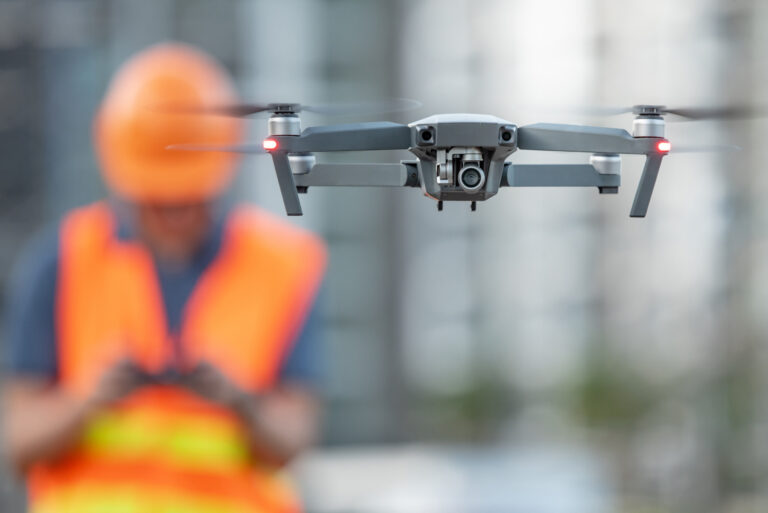Hello, everyone! I’m Dominic Tria, and today I want to delve into a topic that combines two of my biggest interests: technology and the military. Having served as a Datacenter Operations Manager in the U.S. Navy, I’ve seen firsthand how technology can transform military operations. The future of military tech is incredibly exciting, with innovations that promise to enhance defense systems in ways we couldn’t have imagined just a few years ago. Let’s explore some of the groundbreaking advancements that are shaping the next generation of defense systems.
Artificial Intelligence and Machine Learning
Artificial Intelligence (AI) and Machine Learning (ML) are at the forefront of technological advancements in the military. These technologies have the potential to revolutionize defense systems by improving decision-making, automating routine tasks, and enhancing the accuracy of data analysis.
Autonomous Vehicles and Drones
One of the most significant applications of AI in the military is in autonomous vehicles and drones. These unmanned systems can perform a variety of tasks, from surveillance and reconnaissance to delivering supplies and conducting combat missions. AI enables these vehicles to navigate complex environments, make real-time decisions, and operate with minimal human intervention.
For instance, drones equipped with AI can autonomously patrol borders, identify potential threats, and even engage targets if necessary. This reduces the risk to human soldiers and increases the efficiency and effectiveness of military operations.
Predictive Maintenance
AI and ML are also being used for predictive maintenance of military equipment. By analyzing data from sensors embedded in vehicles, aircraft, and other equipment, AI can predict when a component is likely to fail and schedule maintenance before a breakdown occurs. This not only improves the reliability of military hardware but also reduces costs and downtime.
Cybersecurity and Cyber Warfare
As military operations become increasingly reliant on digital systems, cybersecurity has become a critical aspect of defense. Protecting sensitive information and infrastructure from cyber-attacks is paramount, and advancements in cybersecurity technology are essential for maintaining national security.
Advanced Encryption and Quantum Computing
One of the most promising developments in cybersecurity is the use of advanced encryption techniques and quantum computing. Quantum computers have the potential to solve complex problems much faster than traditional computers, which can significantly enhance encryption methods and make military communications more secure.
Additionally, AI-powered cybersecurity systems can detect and respond to cyber threats in real-time, providing a robust defense against increasingly sophisticated cyber-attacks.
Directed Energy Weapons
Directed energy weapons, such as lasers and microwave weapons, represent a significant leap forward in military technology. These systems use focused energy to disable or destroy targets, offering several advantages over traditional kinetic weapons.
Lasers
Laser weapons are capable of delivering precise, high-energy beams that can neutralize threats with minimal collateral damage. They can be used to intercept and destroy incoming missiles, drones, and even aircraft. The speed and accuracy of laser weapons make them an invaluable tool for modern defense systems.
Microwave Weapons
Microwave weapons, on the other hand, use electromagnetic waves to disrupt electronic systems. These weapons can disable enemy communications, radar systems, and even vehicles without causing physical harm to personnel. The ability to incapacitate electronic systems makes microwave weapons a powerful asset in electronic warfare.
Robotics and Exoskeletons
Robotics and exoskeletons are transforming the capabilities of soldiers on the battlefield. These technologies enhance human performance, providing soldiers with increased strength, endurance, and protection.
Combat Robots
Combat robots are being developed to support soldiers in various roles, from carrying heavy equipment to performing reconnaissance and engaging in combat. These robots can operate in dangerous environments, reducing the risk to human soldiers and increasing the effectiveness of military operations.
Exoskeletons
Exoskeletons are wearable devices that augment the physical capabilities of soldiers. They can enhance strength and endurance, allowing soldiers to carry heavier loads and perform demanding tasks for extended periods. Exoskeletons can also provide protection against injuries, improving the overall safety and effectiveness of military personnel.
Hypersonic Weapons
Hypersonic weapons, capable of traveling at speeds greater than five times the speed of sound, represent a new era in military technology. These weapons can reach targets quickly and with incredible precision, making them a formidable addition to modern arsenals.
Hypersonic Missiles
Hypersonic missiles are designed to evade traditional missile defense systems, providing a strategic advantage in both offensive and defensive operations. Their speed and maneuverability make them difficult to detect and intercept, allowing them to penetrate even the most advanced defense systems.
The Role of Data and Connectivity
The future of military tech also heavily relies on data and connectivity. The ability to collect, analyze, and share data in real-time is crucial for modern military operations.
Internet of Military Things (IoMT)
The Internet of Military Things (IoMT) refers to the network of connected devices and sensors used in military operations. IoMT enables real-time data collection and analysis, providing commanders with valuable insights and enhancing situational awareness. This connectivity allows for more informed decision-making and coordinated actions on the battlefield.
Conclusion
As technology continues to advance, the future of military tech looks incredibly promising. Innovations in AI, cybersecurity, directed energy weapons, robotics, and hypersonic weapons are set to transform defense systems and enhance military capabilities. These advancements not only improve the effectiveness and efficiency of military operations but also provide new ways to protect soldiers and ensure national security.
As someone who has experienced the impact of technology in the military firsthand, I am excited about the possibilities these innovations bring. By embracing and integrating these technologies, we can create a safer and more secure future for everyone.
Thank you for reading! If you have any thoughts or experiences to share, feel free to leave a comment or reach out to me directly. Together, we can explore the exciting future of military technology.
Dominic Tria


